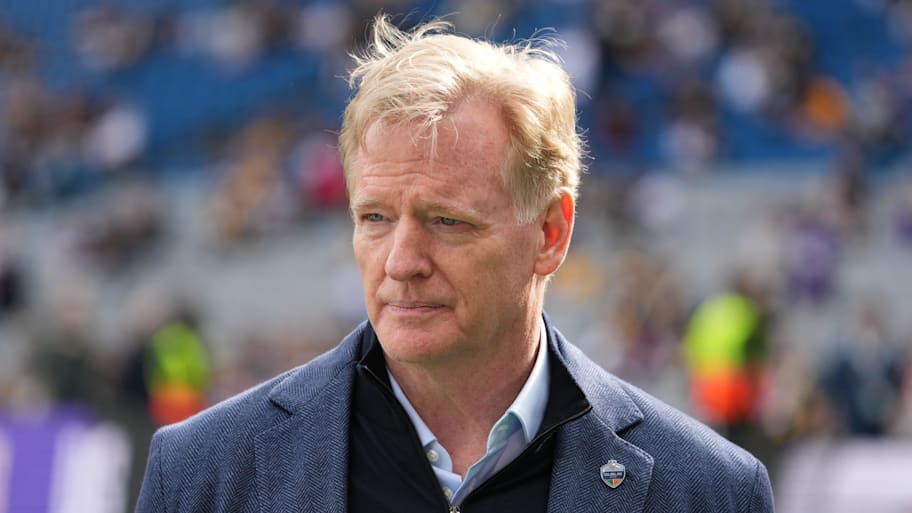Suppose you’re still subscribed to the trope that the NFL is not as fixable as the NBA when it comes to the steady infiltration of illegal gambling into the sport. In that case, I’d invite you to sample some of the more fantastical details of the twin arrests made by the FBI on Thursday morning of Portland Trailblazers head coach Chauncey Billups and Miami Heat guard Terry Rozier.
While Rozier’s was more simplistic—he had a network of co-conspirators to whom he filtered valuable information and would, for example, leave a game with a fake injury to underperform on his individual statistics—Billups was allegedly involved in a technology infused, Mafia-sponsored poker game, the likes of which we couldn’t conceive in our deepest Orwellian fantasy a few years ago. There were contact lenses that could reportedly read pre-marked cards and secret cameras hidden in card trays. And obviously, setting up a prefabricated space to bilk money off a few high-profile marks is simpler than doing so in an NFL stadium.
However, we aren’t naive enough to believe that these players don’t check their cellphones in the locker room at halftime, are we? We aren’t naive enough to think that, amid a much larger betting pool where compromised transactions would be a little less likely to be noticed, there isn’t the possibility that a player could be directed to a few strategic dropped passes over the course of a game from a partner in the crowd or a communication device inside a locker, are we? If we’re literally at the point of creating Cyclops-style eyepieces that can see through solid material, anything is possible.
I’m not trying to be an alarmist. Still, I am trying to implore the NFL to really take stock of how the NBA has consistently harmed its brand and tripped over its own shoelaces when it comes to illegal gambling before a scandal of this magnitude arrives at its doorstep. From the Tim Donaghy situation on, the NBA has been the first and loudest in a race to confirm our deepest suspicions about the nefarious underworld of sports betting and its intrinsic link to athletes who, for one reason or another, are either interested in generating additional income or are forced to do so to satisfy some debt. Pete Rose walked so the National Basketball Association could run.
Roughly 12 hours after the NBA celebrated the emergence of star Victor Wembeyana in a coming-of-age performance against 2025 No. 1 pick Cooper Flagg—not to mention the relaunched Inside the NBA franchise—any discussion around the game has been flooded with wrist-slapping commentary about loose security, morality, permissive culture or whatever nebulous factor you want to use as an umbrella to encapsulate blame for another gambling scandal on (check out the Trailblazers’ YouTube channel and look up Billups’s most recent press conference before the arrest and see how many people are there examining a promising loss to the Timberwolves). The league will most certainly recover because it has reached monolith status, but not without sacrificing more distance between the actual sporting league and the suspicious professional wrestling-style entertainment property. These small, incremental drifts away from legitimacy will seem insignificant until they are not.
NFL shouldn’t ignore what happened to NBA
And that’s really what the NFL has on its plate at the moment—the threat of drift. To me, today represents a kind of fork in the road for Roger Goodell and the 32 owners, where they can attempt to exist as is, or to use this incident as a cudgel to get straight up authoritarian when it comes to their players and coaches making wagers on their own games, or games in which they have inside information.
When the league first embraced gambling, I was sympathetic to the players’ cause because gambling can be an addictive behavior. So while this may sound like a course reversal, I think I would accept the hypocrisy of the NFL going complete death penalty when it comes to gambling while still profiting off it—authoritarianism is rich with hypocrisy anyway—if the flip side was a world in which we have to continue living in suspicion.
Allowing a situation to reach a point where the FBI swoops in creates a strange kind of complicity, or at least the appearance of willful ignorance. Having a league that loudly and aggressively polices suspicious behavior regularly—even creating the optics of concern—is far better than ignoring the situation to the point that outside law enforcement uses your platform to make a high-profile series of arrests.
If, at the Super Bowl, Goodell wanted to arrive with a fleet of Secret Service-looking individuals all wearing dark sunglasses and Men In Black-style suits and call them the Anti-Gambling Squad (still looking for a better name), wouldn’t that be preferable to some stuffed-suit response about how there isn’t a problem?
There is. There has to be. Again, suppose we’re at the point where this much technology exists, where these many stakeholders are willing to compromise athletes, where the mafia (who knew the mafia was still a thing, by the way!) has an incentive to continue exploring this turf. In that case, the issue is already there beneath the surface.
While I realize that the idea of a sports league that prides itself on integrity is laughable and impossible, the top podium spot for a league that wants to bill itself that way is glaringly vacant. The NFL swooping in as the anti-gambling sport of choice could bolster its health for years to come.
More NFL on Sports Illustrated
This article was originally published on www.si.com as Today’s NBA Gambling Arrests Represent a Fork in the Road for Roger Goodell, NFL Owners.
